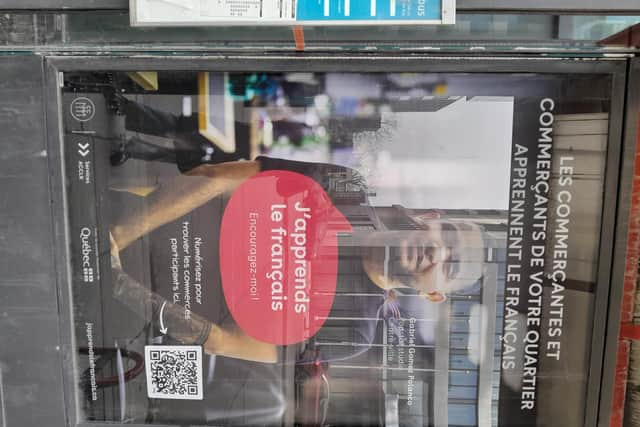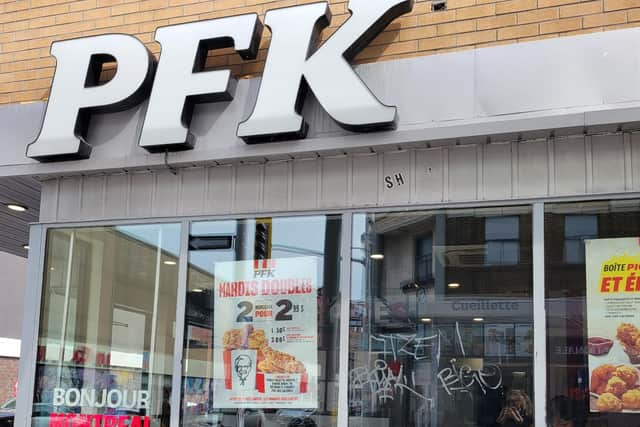World explained: How the nationalist battle in Québéc is changing 30 years after the last independence referendum in the province


When is Kentucky Fried Chicken not Kentucky Fried Chicken? It sounds like a riddle, but the answer is simple: in Québéc , Canada. While everywhere else in the world, regardless of the language spoken - including France - the fast food chain is still known as KFC.
In Quebec, where I am this, week, it is PFK: Poulet Frit Kentucky.
Advertisement
Hide AdAdvertisement
Hide AdWhy? French Canadian nationalism. In accordance with Section 63 of Québéc 's French Language Charter, the name of any business must be in French, hence PFK. Similarly, Starbucks here is branded “Café Starbucks”.


When I lived here for a year as a child in 1993, Québéc was gearing up for its second independence referendum, which saw the “sovereignists”, otherwise known as the independence supporters, only just lose out, scraping 49.42 per cent of the vote, against 50.58 per cent voting No. Since then, support for full independence slumped significantly in favour of devolution, something Paul St Pierre Plamondon, the new head of the Quebec equivalent of the SNP, Parti Québécois (PQ), wants to change. More on that – and my latest interview with him – next week.
Some polls have suggested the separatists could bounce back after 30 years to win the next Québéc election, beating the current ruling party, Coalition Avenir Québéc, which fights for greater devolution, but not independence. Yet, confusingly, support for full independence remains at 35 per cent, around the same level it has been for more than a decade.
The reasoning behind the figures is complex. While preservation of the French culture remains an important part of Québécois life and is supported by the current government, anecdotally, even my most fierce French-Canadian friends in Montreal have softened their attitude, accepting a changing city which has seen large numbers of immigrants arrive in recent years.


Walk into a shop here and you’re greeted with “bonjour-hi”, the cover-all-bases phrase which allows the staff member to ensure they have not offended, whether the customer is French or English speaking.
Some worry English is increasingly taking the attention of young people. With the vast majority of international content on sites such as YouTube, TikTok and Instagram published in English, it is the younger generation which is embracing a more multi-lingual existence, at least in the more urban areas.
As a result, the older generation of Francophones, who are more likely to support independence, are fighting back.
In Montreal, complaints to the Office Québécois de la Langue Française from people who have found they are unable to be served in French in Quebec businesses have doubled in four years.
Advertisement
Hide AdAdvertisement
Hide AdChildren in Québéc have to be educated in French, unless their family meets very specific criteria. Meanwhile, an official scheme to encourage people working in the service industry - many of them new immigrants to Canada - to learn French, sees adverts plastered over bus stops across the city with the slogan: “J’apprends le Francais: Encouragez-moi!” (“I’m learning French, encourage me!”) Advice to Francophones on the scheme’s website is to “speak slowly” to learners and “don’t switch to English”.
It may be 30 years after Québéc ’s nailbitingly-close indyref, but the cultural battle is still raging.
Comments
Want to join the conversation? Please or to comment on this article.
